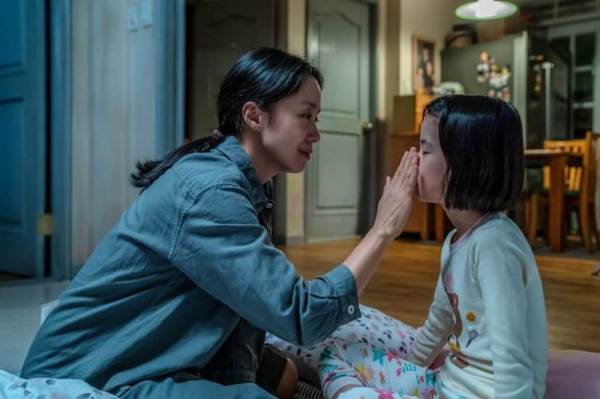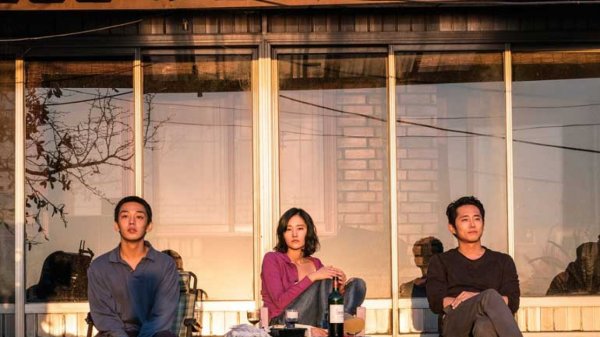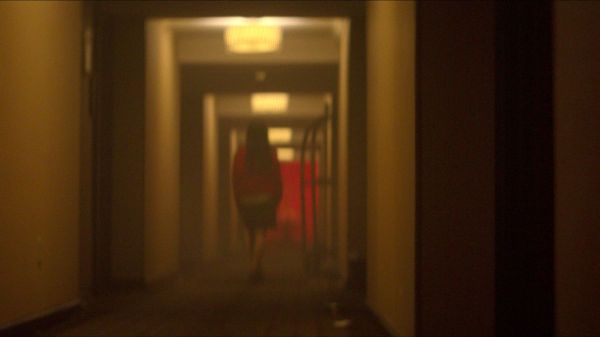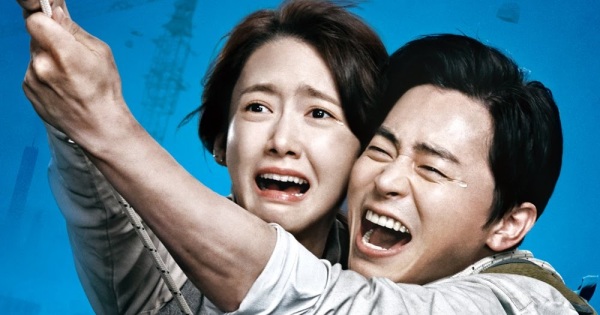On the second day of the Chinese New Year, I was at my brother-in-law’s place, when I chanced upon a Malaysian movie on the telly that I loved a lot called Show Me Your Love (2016) and just like that it took 94 wonderful minutes away from me and filled my heart with hope and love. Interestingly, it has a Chinese New Year scene so it was apt to watch it at this auspicious time. The movie also harkened my mind to another wonderful Malaysian movie called The Journey (2014) which also features a Chinese New Year scene, so do allow me to muse on these two movies and if you are in a sentimental mood I feel these two movies are antidotes for the lonely soul, especially if you are living in a foreign country and couldn’t go back to your homeland to see your loved ones.
(Insert movie still for The Journey)
The Journey was the sweetest surprise. My wifey and I went into the cinema in Johore Bahru having no idea what the movie was about. I remember the rest of the choices were terrible and somehow the innocuous poster of a hot-air balloon spoke to us. I can attest we walked out of the cinema seeing everything in a whole new beautiful light. How many movies can perform that magic?
The Journey is a cross-continental story that explores the idea of culture, not just as tradition but as an expression of love. When Bee (Joanne Yew) returns to Malaysia for the first time in a decade – she introduces her conservative father Uncle Chuan (Lee Sai Peng) to her happy-go-lucky British fiancé, Benji (Ben Pfeiffer). With Benji’s lack of cultural understanding and comprehension of Chinese traditions, Chuan opposes their marriage. Unexpected circumstances ensue, and Chuan reluctantly submits to their union, on the condition that their wedding adheres to Chinese tradition. Part of that tradition is that Chuan must invite all of his childhood friends personally. So the quintessential odd couple, Benji and Chuan, embark on a cross country adventure to deliver the invitations. Despite language barriers and initial hesitation from both parties, the two men come to realize that their priorities are essentially one and the same. Since my sentiments have not changed much, I will just reproduce what I have written in a quick burst, while trying to hold on to the intangible emotions that the movie generated in me.
I missed Yasmin Ahmad (Sepet) so much. With her untimely passing, Malaysia cinema went backwards. That day I saw the future. This is a gem of a film and it didn’t even look cheap like all locally made films. I swear I wore a smile throughout the heartwarming film, an amalgam of sights and sounds. The cinematography is stunning. At times I had to do a double-take because I have never seen Malaysia looking so beautiful. The script is sometimes so hilarious and there are times it is so emotionally poignant. I am not ashamed to say I cried.
It sounds like I am describing a perfect film. It is not. The acting is at times over-wrought, the comedy borders on slapstick (thankfully it didn’t step into farce territory), the direction lacks clarity at a couple of spots, some characters are not developed to satisfaction and the editing is not seamless at times. But the emotional beats are spot-on and the acting so earnest. I enjoyed watching the mopey and grumpy father played so naturally by Lee Sai Peng. There is also hardly any emotional schmaltz forced down our throat which makes it somehow more powerful. A lot of gems came up when we were talking about it later. For example, in the first act Chuan told Benji that he cannot sleep with Bee in the same room. Later in the last act, Chuan is not at home but Benji automatically leaves Bee’s bedroom. What does it mean? Benji is a different person now. He has learned respect and the Chinese way. There are many innocuous gems like these when you let the movie simmer a bit. This is a director I will definitely follow in the future – Chiu Keng Guan.
When The Journey ended, it put us in a sublime state and both of us simultaneously proclaimed “this is so good”. We couldn’t stop discussing it all through dinner and even on the journey back. Ah… that word again… Journey. The movie made both of our hearts soared up on cloud nine. It’s the type of film that comes once in a while… It may be far from perfect but it wears its warm heart on its sleeve and it will make you want to hug everyone in the cinema because they are ‘family’.
(Insert movie still for Show me Your Love)
The following was something I wrote in a flurry and posted on my Facebook and I still stand by it…
Some years ago The Journey (一路有你) surprised me with its spot-on poignancy and I have not seen another made in Malaysia movie that wields the same magic until now. Written and directed Penang-born Ryon Lee, Show Me Your Love (大手牵小手) touches on themes of familial love, separation and reconciliation.
While planning to move to Guangzhou with his wife, Hong Kong teacher Nin (Raymond Wong) is forced to return to his childhood home in Malaysia after the death of his aunt. Upon returning he is reunited with his mother Sze-nga (Nina Paw) whom he left behind after going to university in Hong Kong. The story is entirely told from Nin’s point of view, from when he was a young boy till he is a middle-age man. We see how he struggles through life with his young mother (superbly acted by Michelle Wai and Nina Paw) and slowly grows estranged from his mom. But one day, years later, he decides to pick her up and live with her. Things don’t go smoothly because she is old and forgetful. Things get even worse when he learns she has a terminal disease. I am guessing at this point you have probably mapped out the plot to the ending in your head and screamed “you had me at ‘terminal disease’.
The movie does a solid job with the flashbacks giving purpose and providing juxtaposition to link scenes across time. Sometimes we experience a life-changing episode and our mind time-stamps that precise moment that we thought we understand, but with the passage of time, the mellowing of hearts and divine revelation, we learn we can be so wrong with our judgment. The movie does a great job with that. It also aptly adds that it is never too late to change. The movie doesn’t get bogged down with some over-sentimentalism but thankfully it is suffused with great music. I guess you know the mother dies but in all my years of having seen poignant death bed scenes in Chinese movies only C’est La Vie, Mon Chéri (不了情) (1993) is the champion. This, in my humble opinion, is the runner-up. I cried like a baby, but I also laughed like an idiot. Lee does a great balancing job with the LOL scenes and the tear jerking ones. Nina Paw is a joy to watch.
I teach kids how to end stories – how it needs to bring back a memory, rev up the feels and hit an empathetic note so that the reader doesn’t forget it immediately. This one does all that. It is not a masterpiece or anything, but stuff that can make me laugh and cry (which is a tough combi) are very few. If you are watching this, place a box of tissues next to you.
This next part is an addendum – it is testament that a movie is good if I can sit through it again, going through a gamut and tumult of feels all over again. This is a story of tough love, a mother having to leave her son for work in a foreign land and a son who grows up wanting to punish the mother by leaving her at any opportunity. Ultimately, in her last days, they managed to spend quality time together and learn to forgive each other and themselves. While watching it again yesterday, I had to step away at some scenes and stuff my face with cookies because I could feel my eyes welling up and my heart was going to explode into a shower of rose petals. No way was I going to let anyone see me in a vulnerable state.
If you are still reading, I just want to say “thank you” for your support and may this new year bring great tidings to you and everyone in your family. 😍
Written by Daniel Chiam









